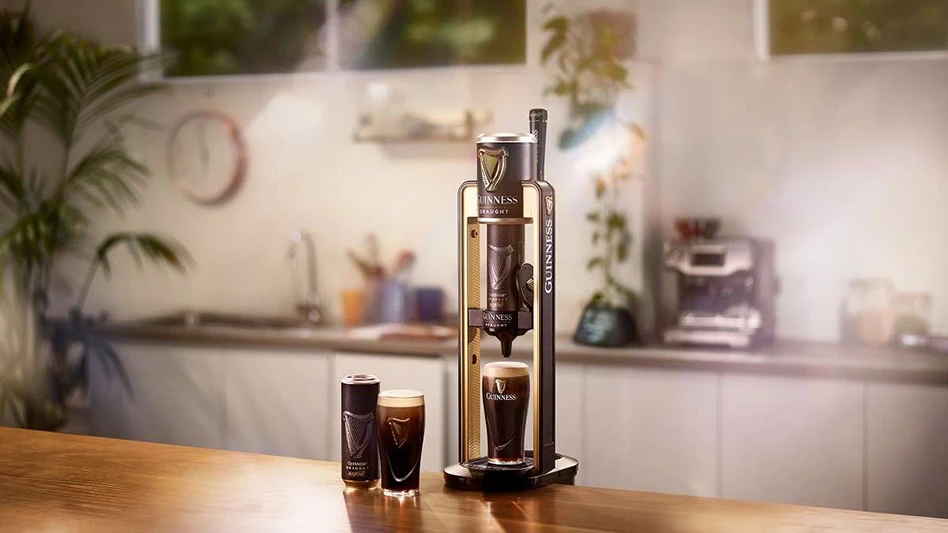
Photo courtesy of Diageo
United Kingdom-based spirits producer Diageo says it will invest in a facility with the capacity to produce hundreds of thousands of tons of recycled-content aluminum in that nation.
The firm, which includes Guinness beer among its product lines, says it is providing funding to establish the British Aluminium Consortium for Advanced Alloys (BACALL), calling it a "collective of industry experts who will create a circular economy for aluminum in the U.K."
The consortium will lead an effort to build a plant to roll hundreds of thousands of metric tons of aluminum sheet in the U.K., more than enough for 400-plus million cans of Guinness and premixed Gordon’s and tonic, according to Diageo. BACALL says it is in the design, engineering and site selection stage of the project.
Currently, making recycled-content aluminum cans in the U.K. relies on an energy-intensive supply chain based on exporting and importing aluminum, the company says.
Diageo says the planned plant will “establish a new circular economy supply chain for aluminum [that] will keep the recycling of aluminum in the U.K. and cement the U.K.’s position as a leader in the adoption of carbon reduction and manufacturing.”
“We are now seeking to work in partnership with business and government to not only reduce aluminum’s carbon footprint but also to bring this part of the aluminum supply chain back to the U.K.,” says Ewan Andrew, chief sustainability officer at Diageo.
Diageo says once the plant is up and running, it will contribute to the company’s 10-year sustainability action plan by increasing the use of recycled aluminum in Guinness cans and reducing the carbon emissions needed to export and import aluminum sheet.
“Aluminum is one of the most recyclable materials on the planet, yet the 15 billion plus cans made in the U.K. rely on an energy-intensive supply chain, that requires aluminum to be brought in and out of the country," says David Sneddon, a nonexecutive director at BACALL.
“By sourcing, recycling, manufacturing and supplying aluminum flat-rolled sheet in the U.K., we can localize and close the supply chain, providing substantial reductions in carbon emissions. This will help create a more sustainable aluminum industry and will secure the future capacity of ultra-low carbon alloys," Sneddon adds.
The plan between Diageo and BACALL traces back to 2021, when Diageo jointly funded a feasibility study with the U.K. government’s Innovate UK program, examining whether and how a large-scale circular economy strategy could be adopted in the aluminum sector in the U.K.
“Aluminum has the potential to be zero carbon, but the entire supply chain needs to see a dramatic reduction in emissions,” says Geoff Scamans, professor of metallurgy at Brunel University in London. “The U.K. currently exports much of its aluminum scrap, yet at the same time imports nearly all aluminum sheet. By changing this, we should see a significant carbon footprint reduction.”
Latest from Recycling Today
- BMW Group, Encory launch 'direct recycling’ of batteries
- Loom Carbon, RTI International partner to scale textile recycling technology
- Goodwill Industries of West Michigan, American Glass Mosaics partner to divert glass from landfill
- CARI forms federal advocacy partnership
- Monthly packaging papers shipments down in November
- STEEL Act aims to enhance trade enforcement to prevent dumping of steel in the US
- San Francisco schools introduce compostable lunch trays
- Aduro graduates from Shell GameChanger program





